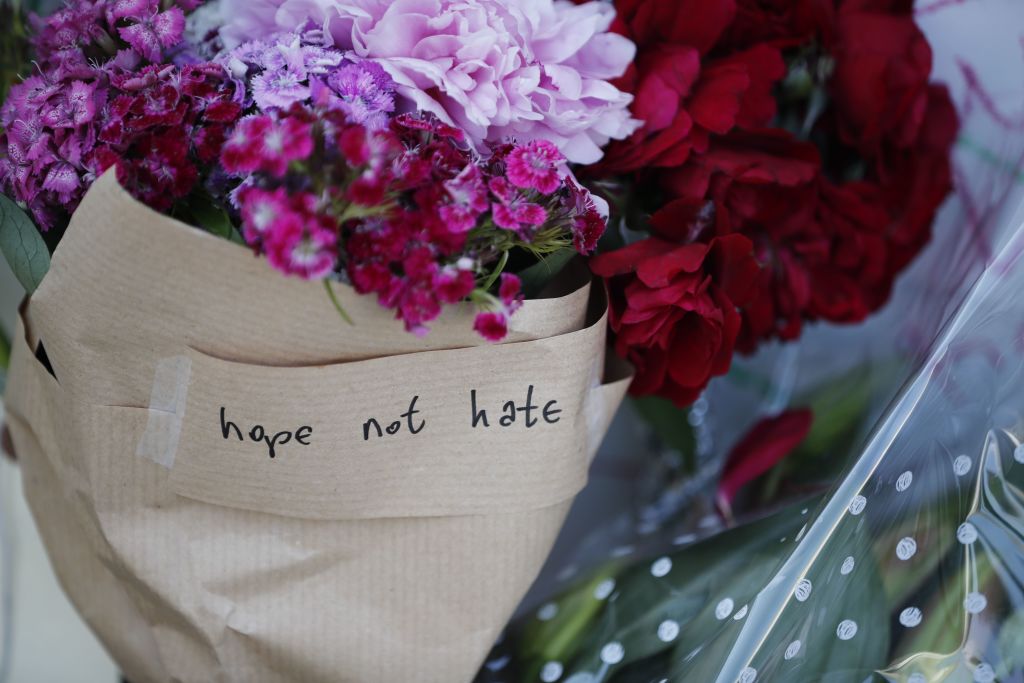Hope Not Hate is an organisation with a fine campaigning record which has done a lot of good in tackling extremism. But this week, they tweeted that ‘the far-right and the climate crisis are linked. They spread disinformation, fear-monger about climate-driven immigration and engage in denialism to spark culture wars.’
I’m not entirely convinced by the assertion. For one thing, it seems unlikely that the primary reason for someone joining the English Defence League would be their stance on climate change, nor would I expect the BNP to focus on climate denialism in its manifesto.
Yet in shifting its attention to a cause which seems to be outside of its remit, Hope Not Hate is far from alone. By merely stating that the two domains are related, they grant themselves licence to pronounce on another policy area. In recent years, taking leaps across to other notionally proximate causes has become common among charities and other businesses.
Oxfam, for instance, has evolved over the years from famine-relief to overt political activism, including publishing wildly misleading claims about wealth distribution. The Body Shop was founded with a view to sell products with ethically-sourced, cruelty-free and natural ingredients; it is hard to see how that naturally extends into challenging JK Rowling on transgender rights. Similarly, Lush was founded to make and sell vegetarian and vegan products but oddly launched a prominent campaign in 2018 against abuses by undercover policemen.
Another case is the charity Stonewall, formed in 1989 to focus on Lesbian, Gay and Bisexual rights. Up until 2015 it regarded sexual orientation and gender identity as distinct issues, preferring to work in partnership with transgender charities where appropriate. However, this changed following the introduction of equal marriage laws in 2015 and Stonewall expanded their objectives to campaign for transgender rights.
Some might say this is a classic example of the reluctance of an organisation to close when their aims have been met. Stonewall could have announced that it had achieved all its campaigning aims in the UK and was going to work on lobbying the 73 countries where homosexuality is still illegal. It could have left campaigning for transgender rights to those other organisations working in that area. Instead, it moved (controversially) to occupy that space.
One problem with this sort of expansionism is that LGB and Transgender rights occasionally come into conflict. In Iran, for example, gay people are often forced into gender reassignment surgery to ‘cleanse the country of homosexuals’. In the UK, some gay men and women have been accused of transphobia for being attracted to people of the same sex but not transsexuals who have not undergone gender reassignment surgery. How can one organisation effectively represent both sides of an argument on such issues?
Stonewall’s campaigning front appeared to broaden still further following the stabbing of three gay men in Reading last weekend. They tweeted: ‘Our thoughts are with those affected by the attack in Reading on Saturday. It’s heartbreaking to hear two of the victims were LGBT. But we can’t let Islamophobic, racist and xenophobic rhetoric be used to divide us. We must stand together to make progress.’
Again, this is a noble sentiment, but is it what should be expected from a charity notionally focused on gay rights? In 2016, a poll found that 52 per cent of British Muslims thought that homosexuality should not be legal, compared to five per cent among the general population. Many gay Muslims feel compelled through societal and familial pressure to live in straight marriages. Would Stonewall regard it as Islamophobic to campaign to change those attitudes? And if they won’t challenge these views, then who will?
It needn’t be this way. It could be argued that an organisation like Hope Not Hate is better placed to focus on community relations and that Stonewall should press on LGB issues. Resolution can then come through dialogue and debate rather than a pretence that complex issues don’t exist.
The culture wars mentioned by Hope Not Hate are not calmed by groups forming a single united front across a broad range of issues. There are gay people who are concerned about levels of immigration. There are advocates for better community relations who do not believe in anthropogenic climate change. There are passionate environmental activists who are nevertheless concerned about the infringement of transgender rights on women’s rights. There are people who care about poverty but who disagree with abortion being available on demand. There are people who think that children mining cobalt for electric car batteries is a bigger issue than climate change. And there are many people who support the black lives matter campaign but who would rather not dismantle capitalism.
Politics is the art of compromise and to make informed decisions we need to hear voices clearly putting forward every side of an argument. As such, it would be hugely beneficial if organisations with prominent voices were just a bit more willing to maintain focus.






Comments